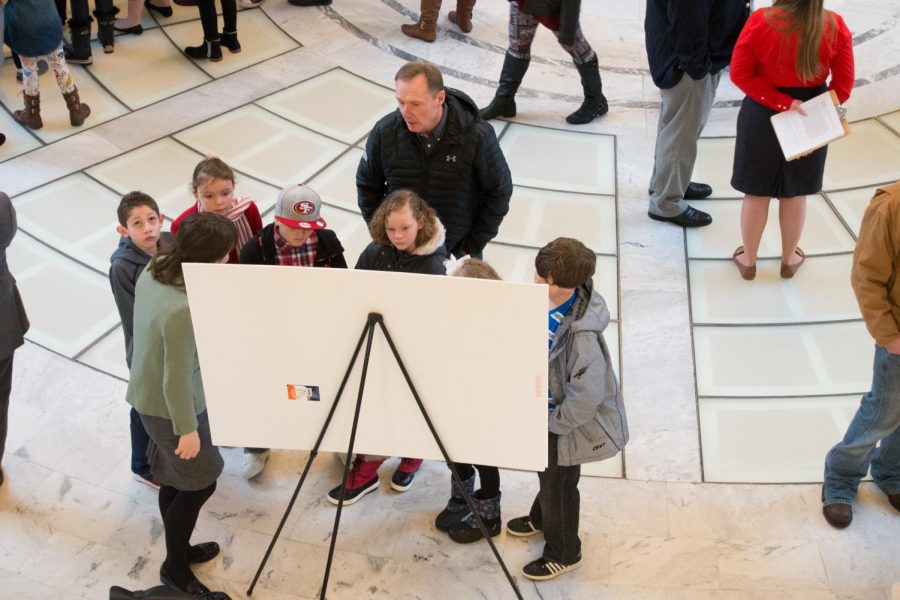As COVID-19 Spreads Across the Globe, What Happens to Student Research?
March 22, 2020
On March 12, the University of Utah announced that all courses would be moved to an online format and encouraged those living on-campus to move home if possible.
As a tier R1 university, when classes move online and students move off-campus, what happens to the research?
For some student researchers, the calls for quarantines and self-isolation haven’t detracted from their theses and dissertations.
“My honors thesis and research haven’t been affected by the online class movement,” said Kaedyn Crabtree, a senior pursuing an honors degree in psychology. “I just have to Skype with professors, instead of meeting in person, which is a small barrier for me.”
Matthew Orr, a doctoral student in the learning and cognition program at the U, completed his data gathering before the COVID-19 outbreak.
“My research may have seen a benefit as now I am directed to stay at home, which gives me uninterrupted time to work on data,” said Orr. “Before the move to online-only classes and meetings I was constantly going back and forth from campus and working on a variety of projects, but now I am able to stay at home and focus solely on my data and thesis without having to worry about wasting time going places.”
For others, the rapid shifts experienced by the university, the state and the nation are bringing theses to a halt and throwing dissertations up in the air.
Undergraduate Research
The university already canceled the Undergraduate Research Symposium, where honors graduates are required to present their theses and other research is displayed at the A. Ray Olpin Union.
On Sunday, March 15, 2020, the Honors College at the U announced via email that the Honors thesis deadline would be pushed to May 7 at 12 p.m. from April 21.
“You are probably wondering about your honors thesis/capstone work and how that might proceed now that classes have gone online,” said Dean Sylvia Torti via email. “Let me say that I share with you the sentiment that this turn of events is frustrating, saddening and anxiety-provoking. As for you, this is an unprecedented experience for the college.”
In the Honors College’s email, students were instructed to discuss impacts with their thesis advisors.
“If your lab is not open, or you are not on campus/in SLC, or you do not feel comfortable returning to the lab space at this time, please discuss a plan for successfully completing your thesis work.”
For students graduating with Honors degrees this spring, Torti plans to write a forward for all theses, to “note the unusual circumstances surrounding this year.”
In a separate email interview with Torti, she asked honors students to remain optimistic.
“Also, remember that the advantage of working and studying at an R1 university is that faculty have global collaborators and are quite accustomed to working at long distances,” she said. “Many active labs already incorporate these types of distance and online exchanges into their work.”
Graduate and PhD Students
Some research has suffered from the closures — limited access to their data collection methods and other forms of research, like laboratories, are slowing down studies. This has been felt especially by graduate students and Ph.D. candidates.
“Luckily I have collected all of my data already, but our department (educational psychology) has shut down the subject research pool,” Orr said. “This would mean that there are many students who are now not able to collect data for their projects.”
Kristin Bain, a Ph.D. student in the Department of Management at the U, falls into this category.
Bain researches cooperation between individuals and is still in the data collection stages.
“As part of my dissertation, I need to run three studies — two online experiments using Amazon’s Mechanical Turk as my sample and a group study using students as my sample,” Bain said in an email interview. “The group study requires that I have individuals interact with others to make a group decision. Because I’m interested in how people share information, I decided to use a chat-based platform for their discussions so I could analyze the text of their discussions.”
Bain plans to graduate this summer. However, if she defends her dissertation by the end of April, making the spring deadline, she won’t have to pay summer semester tuition for the dissertation course.
With this deadline looming, Bain and other Ph.D. candidates are in a bind to gather enough participants. She’s used the out of class participation requirements in many business classes as the primary source of participants, along with a paid pool of volunteers and participants through a different university’s student pool.
“The social distancing policies and practices currently in place have raised a number of additional obstacles (if I were a motivational speaker I’d call them “opportunities”) that I’m needing to work around,” Bain said.
Many of these obstacles require remote access to participants, and Bain’s dissertation deadline depends on them.
“I’ve worked with the IT department in Eccles to expand my Zoom account so I can run my experiment remotely. I need to make some changes to the actual Qualtrics survey I’m using to collect my data to adapt to the remote format and I’ve had to restrict the number of participants I can run in each session, at least temporarily. I’m working with the faculty in charge of the paid pool but we are still unsure if we’ll be able to adapt enough to pay participants online. Currently, I’m not sure if I’ll be able to access participants from the other University I was working with — I’m unclear if they’ll be able to adapt to the new remote format of the study.”
On top of their research, some graduate students also teach courses. For Katelyn Brooks, a graduate teaching assistant in the communication department, COVID-19’s impact has been two-pronged.
“I [deal more with] text [for my research], so I don’t have to really interact with any people to get my data,” Brooks said. “But I’ve been impacted the most by having to drastically and very quickly readjust the course that I teach. That’s been taking away from the time that I had originally scheduled for the semester to be able to write my thesis.”
Brooks spends about four hours a day trying to “completely redesign” assignments and alter submission requirements for students now that the U is online. Even with support from other professors and faculty, Brooks is concerned about meeting her thesis deadline — and the impending summer semester tuition costs that Bain also faces.
“I was already planning to graduate in the summer,” she said. “But, my concern is the ‘loophole’ for graduating in the summer is that you need to have a thesis before summer semester begins. Otherwise, you need to pay summer semester tuition for the thesis hours.”
On March 19, the Masters of Public Policy sent out an email to graduate students in the program, stating that “the Graduate School is willing to extend deadlines for final Capstones until June 15 without requiring students to register for one credit hour of summer semester.”
It is unclear whether this deadline extension applies to all departments.
Other researchers, though impacted by some campus closures and the move to online courses, see long-term effects on their research. For Christopher Jensen, a Ph.D. candidate, his dissertation is on the edge of now or never.
“My dissertation fieldwork in Cuba is all up in the air now,” Jensen said. “My plan was, starting this spring, to take between four to five three-week trips to Cuba.”
Jensen studies and works with community-based organizations, like nonprofits, in Cuba. His dissertation was planned to be a deeper look into the research he completed for his graduate degree. He received a grant from the International Studies Center at the U, and was paired with a research institute in Cuba to obtain a research visa. He bought plane tickets, set up research participants, sent in his documents to the foreign ministry, and worked on his paper. Then, the global pandemic started spreading.
“I got word from the center that the U is restricting travel until the end of May for sure, and then who knows after that,” he said. “One of the challenges is that Cuba is a really sensitive geopolitical area. With the pandemic, there’s talk in Florida to shut off all travel to Cuba.”
Jensen knows that he’ll need to postpone his research. But, that may mean losing the opportunity.
“We don’t know which way the wind will blow politically,” he said. “And, I don’t know if the window will close completely on me. That’s a big question that stresses me out every day. I’m just praying that it’ll work out somehow.”
Stay up to date with lab and other resource closures relating to research on the U’s research website.
Editor’s note: Signs and symptoms of COVID-19 include fever, dry cough, tiredness and shortness of breath. These symptoms are believed to occur between two and 14 days after a person is exposed to the disease. If you have these symptoms and have recently come into contact with a person who is known to have COVID-19, or if you have recently traveled to an area with community spread of the disease, you should call your doctor. Areas with community spread of COVID-19 are believed to include China, South Korea, Italy, Iran and Seattle. If you do not have a doctor who you visit regularly, please call the Utah Coronavirus Information Line at 1-800-456-7707 or the University of Utah Health hotline at 801-587-0712. Do not go to a healthcare facility without first making arrangements to do so.








